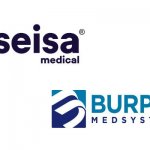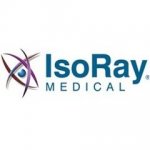Online marketplaces are websites with a “many-to-many” business logic. They can host multiple suppliers trading with multiple buyers via different e-commerce tools available as a part of a website functionality.
Why are online marketplaces great?
Online marketplaces can provide a substantial added value to its users. For example, buyers can quickly compare and select better offerings without the need to research multiple websites and surf online for price comparisons or product specifications. Additionally, marketplaces bring more transparency, trust, and standardization to the whole process of sourcing.
On the other hand, suppliers benefit in that they can get a more targeted audience streamlined directly to their product or service pages. In fact, a well-represented company profile with a specifications-rich catalog can be a powerful lead magnet for potential customers.
Both buyers and suppliers benefit a lot if a marketplace leads a role in the operational activities, such as bidding, quoting, invoicing, consulting, basic customer support etc. There are marketplaces out there which do exactly this.
Want to publish your own articles on DistilINFO Publications?
Send us an email, we will get in touch with you.
Normally, marketplaces include catalog search capabilities, options to quote and place orders online, as well as payment options to finalize a purchase. Sometimes, marketplaces support different rating or verification algorithms to make sure the website users — either suppliers or buyers — are reliable business partners to deal with.
Marketplaces for life sciences
The life sciences sector is prone to embrace e-commerce as a general business paradigm. For example, in a recent PwC analysis it was suggested that by 2020, e-commerce sales in the life science research market would approach 80 percent, with traditional sales methods (emails, conferences, paper journals and ads) declining down to 20 percent. Since marketplaces are a big part of e-commerce in general, they will certainly have a bright future in the area of life sciences.
On the other hand, a more complex nature of scientific products, compared to “traditional” everyday products, imposes the need for more advanced tools and more sophisticated user experience at life science marketplaces. Scientists need more information than is readily available on product packaging; nomenclature often varies from manufacturer to manufacturer making it difficult to compare “apples to apples”; and the stakes are high when choosing wrong. Using a non-optimal product in an experiment can lead to flawed data, poor, or non-reproducible results.
Let’s review some of the marketplaces operating in the domain of life sciences research, and how they deal with “nuances” of the industry: I have roughtly clustered them by specialization (please, do feel free to suggest more marketplaces if I missed something):
- Various Research Products (consumables, reagents, research materials)
- Fine Chemicals (building blocks, screening compounds, intermediates)
- R&D Outsourcing Services
- R&D Crowdsourcing (open innovation challenges)
- Hiring Talent
- Lab equipment and instruments
- Biospecimens and health data
- “Bonus” List
Various Research Products (consumables, reagents, research materials)
Zageno
Founded in 2015, Zageno is a rapidly growing life science marketplace with offices in Boston and Berlin (Germany). The marketplace offers all sorts of biotech research and experiment products, including protein purification, DNA and RNA extraction products, gene editing products, CRISPRs, PCR products, sequencing products, library preparation products, lab analysis software, detection products, molecular labeling products, assays, pathogen detection products, nucleotides, enzymes, biochemicals and reagents, and hundreds of other categories.
Zageno has created a proprietary application algorithm able to compare specifications, as well as incorporating an independent, unbiased “Zageno Scientific Score,” taking into account millions of scientific publications — to simplify product comparison process for a scientist.
In October 2017 the company raised Series A investment of $8 Million US Dollars to grow its presence in the US and Europe.
Quartzy
Quartzy is a hybrid service combining a lab management software and a marketplace of lab consumables and reagents. In this model, buyers are essentially users of the lab management software designed to manage lab inventories, lab procurement process, spend control and payments. With the software comes a marketplace so that users can search for products from different suppliers hosted within Quartzy catalog.
The service is free to use for buyers (labs), while suppliers have to pay a service fee to host their catalogs. The platform gained over 100,000 customers with well-known academic institutions among them — Stanford, Oxford, Columbia University, Duke, as well as prominent industrial players.
The company was founded in 2009 by Jayant Kulkarni and Adam Regelmann, and is based in Palo Alto, CA. It has attracted $22.2M in 3 rounds of investment so far.
BiotechZone
Positioned as a “global marketplace for biotechnology”, BiotechZone is another example of e-commerce platforms for supporting life science practitioners with research tools and materials, including biologicals, labware consumables, chemicals, reagents, lab equipment, instruments, software, services and facilities. It is a relatively young project — founded in April 2016; to date, the company raised a seed round of 115,000 euro.
Fine Chemicals (building blocks, screening compounds, intermediates)
Chemspace
Chemspace is an open marketplace for searching and ordering specialized chemical compounds — building blocks, which are demanded in early stage drug discovery research and medicinal chemistry programs. Chemspace currently hosts more than 80 suppliers of fine chemicals and the aggregated catalog of chemical building blocks totals 50 million unique structures. Another type of products available via Chemspace is screening compounds, currently totaling 50 million items as well. The main focus of this marketplace is to provide medicinal and pharmaceutical chemists with a comprehensive coverage of previously unchecked chemical space and stimulate new synthetic ideas.
The marketplace is equipped with a chemical structure drawing tool (MarvinJS) and a sophisticated search module with different advanced filter options. It is possible to surf the catalog by chemical structure, CAS number, MFCD numbers, IUPAC name, catalog identifiers, and InChI keys.
Chemspace operates as an open platform meaning any qualified supplier can join freely and sell compounds at this marketplace without a service fee. Chemspace is generally not involved in managing operational activities on the side of buyers or suppliers and its role is limited to providing a comprehensive searchable database of compounds with an access to supplier’s e-commerce.
The company was founded in 2015 as a joint effort of several leading fine chemicals suppliers — Enamine Ltd, ChemBridge Corporation, UORSY and FCH Group — to create a “one-stop-shop” for searching and ordering building blocks online. It is based in Riga, Latvia, and has representative office in the United States.
eMolecules
This is one of the earliest marketplaces in the segment of fine chemicals for drug discovery, founded in 2005. The company is headquartered in San Diego, California with offices also in Boston and London, employing over 40 people. eMolecules catalog hosts over 6 million chemical structures, including building blocks and screening compounds, from a network of 130 validated chemical suppliers. The chemical search tool at eMolecules marketplace allows performing substructure, similarity or exact searches; alternatively, it is possible to use SD file, SMILES, chemical name, CAS number, catalog number or eMolecules ID number.
Apart from catalogs of fine chemicals, eMolecules marketplace also hosts a large set of antibody catalogs from various suppliers. Those can be searched by supplier name, biological target, host, conjugation, isotype, application, clonality, and catalog number.
The marketplace supports ERP-integration with suppliers and buyers, offering capabilities for building e-procurement workflows between buyers and vendors.
Molport
Molport is a European chemical marketplace offering primarily two classes of fine chemicals for drug discovery research: building blocks — for medicinal chemistry and custom synthesis programs; screening compounds — for early hit exploration programs.
The marketplace hosts online catalogs from more than 60 suppliers of fine chemicals, the total number of stock compounds exceeding 7 million. Molport supports chemical structure search (MarvinJS), as well as different text search options with multiple advanced filtering capabilities.
Molport takes care of some operations and logistics to assist buyers, for example, they can consolidate shipments from multiple suppliers into one package. The policy of the platform is to ensure the same level of pricing for the listed compounds as the prices by the original suppliers working with Molport.
The company was founded in 2006 and has attracted $1.34M in 3 rounds of investment ever since.
The marketplace has API and KNIME nodes available for building automatic data request wrokflows.
R&D Outsourcing Services
Science Exchange
Science Exchange is a web platform for outsourcing scientific research where academic institutions or commercial companies, buyers, can order research expertise and services from a network of individual scientists, research labs or contract research organizations — suppliers. While the marketplace covers a broad range of scientific areas, with brands like SpaceX and NASA among the users, Science Exchange has a strong presence of major life sciences brands, like National Institute of Health, Gilead, Sanofi, and Shire, to name a few. It claims to have 2,500+ different service providers using the website.
he platform has pre-established contracts in place protecting user’s intellectual property and confidentiality, so no additional operational or legal tasks are needed on the side of buyers and suppliers to start doing business.
Science Exchange has a support team of research consultants called “concierge service”. They assist communication between buyers and suppliers at all stages helping with service search, quote comparison, negotiation and concluding a deal. The marketplace retains a fee for its services which is a percentage of a contract value.
The company was founded by Elizabeth Iorns, a New Zealand scientist in 2011 and up to now, it has raised $72.5M in 5 rounds of investment (Round C in 2017).
Scientist (formerly Assay Depot)
Scientist.com is a network of public and private e-commerce marketplaces that connects buyers and suppliers of research services. Similarly to Science Exchange, it provides a powerful tooling for R&D outsourcing of all sorts — with a strong operational support, 24/7 research consulting service, and all the needed administrative and legal contracts in place for the seamless business interaction between users.
In contrast to Science Exchange, though, the Scientist is focused primarily on the area of life sciences with a majority of service providers and buyers being from pharmaceutical and biotech industries. The website users include world’s leading biopharma brands — AstraZeneca, Bristol-Myers-Squibb, Novartis, Pfizer and alike. The website claims to have above 17,500 research service providers. Scientist.com retains a transaction fee for its services.
The company was founded in 2007 by Kevin Lustig, Chris Petersen and Andrew Martin with the first online marketplace launched in 2008. By this time, the project raised $31M in 4 rounds of investment.
It is interesting to note that in 2012 Scientist took part in organizing open science challenges in US regions for researchers and young scientists.
Labs Explorer
Labs Explorer is a relatively new project founded in 2016 in France. The platform is essentially a catalog of research organizations and companies with the ability to add services in the company page. The website supports text search functionality where buyers can find information about suppliers and their services. The full e-commerce workflow is not yet realized but can certainly be expected in the future.
The products and services listed at Labs Explorer can be quoted through the marketplace. While the website is free to use for both buyers and suppliers with the ability to create a company profile with product/service page, Labs Explorer retains a 10% fee on all the trading transactions arranged through the marketplace.
Contract Laboratory
Established in 2003 by a former US Food and Drug Administration employee, Contract Laboratory is among pioneering websites offering scientific research outsourcing services in a format of a centralized marketplace. In contrast to more traditional marketplaces with e-commerce workflows and shopping carts, Contract Laboratory is built more as a bulletin board, where customers can post their needs for R&D outsourcing, while numerous research labs and contract research organization can browse requests and quote their services, thereby competing to be selected as an outsourcing partner.
According to the website, Contract Laboratory facilitated over 80,000 scientific requests worldwide, including large multinational corporations, startups, governments, and universities among requestors.
This web-service originally started in pharmaceutical, and biotechnology industries, and later expanded into consumer products, oil and petroleum, electronics, construction and building, power and energy, and other industries.
Genohub
Genohub is Texas-based niche marketplace which was created in 2013 specifically for researchers in need of next-gen sequencing services. It provides a flexible way of procuring and managing sequencing services, bioinformatics services, and optical genome mapping services. The website allows vendors to list not only regular services, but also one-time offers with flexible pricing and turnaround times to get runs moving faster. The marketplace supports automated matching and pricing functionality to streamline the operational part of work for both vendors and buyers. Researchers can search for providers and services using a variety of metrics.
Complete e-commerce functionality is supported with the ability of ordering, payment and data delivery.
Quickly find next-generation sequencing and bioinformatics services from our network of over 100 partnering providers.
R&D Crowdsourcing (open innovation challenges)
Innocentive
Innocentive is an open innovation marketplace connecting companies — seekers — with a wide network of scientific or engineering professionals — solvers. Seekers can publish offers to solve a particular research problem for a fixed cash award — so-called “open innovation challenges”, while solvers can provide their offers to solve the problem. The platform has all the legal documents in place to make sure any intellectual property or confidentiality matters are in check.
As of present time, the solvers’ network counts more than 380,000 specialists from nearly 200 countries.
The company was founded in 2001 in Waltham, MA, with a major seed contribution from Eli Lilly and Company, and later in 2005, the Innocentive was spun out of Eli Lilly. Innocentive has a representative office in London, UK. To date, the project has raised $30.3M in 4 rounds of investment.
Hiring Talent
Clora
Clora is a classic two-sided marketplace matching life science consultants and biopharmaceutical organizations who need talent for realizing research projects. This Boston-based startup, founded in 2016, already raised $3.3 million seed round from Spark Capital and a number of co-investors.
When a customer posts a project with its highly specialized research requirements, Clora’s proprietary technology selects up to 3 candidates meeting the requirements, providing a 100% success rate in matching within days. The website categorizes talent into 29 different specialities, ranging from research and production, to legal, accounting, safety/pharmacovigilance. Essentially, this marketplace transforms a highly laborious biopharma hiring process into an algorithmic and well-managed workflow.
Hloop
Hloop is more recent job marketplace startup dedicated to facilitating talent acquisition process in pharmaceutical, biotechnology, and medical device industries. Founded in 2017 in London, it allows life science companies to manage HR process across a wide range of requirements and roles — from pre-clinical specialists, to finance managers and accountants for short and long-term employment opportunities.
Lab equipment and instruments
Lab & Process
Lab & Process is a relatively young French project (founded in 2015), which is a marketplace of scientific equipment, instruments, consumables, and equipment software for laboratory use. The marketplace supports a text search by keywords, and product or service category. Buyers can request quotations for specific items of interest, while vendors can get free visibility and qualified leads.
Biospecimens and health data
iSpecimen
iSpecimen is niche marketplace for human biospecimens, where researchers can get the specimens they require for the projects from a category of patients they need. Founded in 2009 and based in Lexington, MA, the company raised collectively $10 million in two venture capital rounds. iSpecimen marketplace streamlines and centralizes the process of connecting healthcare organizations that have access to patients and specimens with researchers in need. Owing to proprietary cloud-based technology, the marketplace users can search for specimens and patients within a federated network of partners, including hospitals, biobanks, blood centers, labs, and other healthcare organizations. The marketplace and its internal workflow is designed and regulated to meet the strict industry standards and comply with sensitive data transfer regulations.
Longenesis
Longenesis is a very early stage project utilizing blockchain and artificial intelligence technologies as core components of a health data marketplace, where users can sell their personal health data in a secure and private way, while research organizations can access this data in an anonymized format for pharmaceutical research purposes.
The types of data which will be traded at Longenesis include genomic data, laboratory tests, and other health data. Both individuals and large data providers (e.g. biobanks) can use the marketplace to sell data for research use in the anonymized format.
“Bonus” List
Here is a review of additional resources that are not marketplaces per se, but still appear to be very userful for improving buyer’s experience in the area of life sciences:
Bioz (AI-driven search engine)
While this platform is not really a marketplace, rather, a search engine for life science researchers, it is included in this review because the approach Bioz uses might well become the future of online marketplaces — with AI-driven data-mining and automatic dynamic categorization, rating, and suggestion workflows being in the core of the operations, instead of “classic” static catalogs supplied by vendors and listed manually.
Founded in 2013 by Stanford research scientist, Karin Lachmi, Ph.D., and CEO Daniel Levitt, Bioz is a Stanford-StartX accelerator company applying Artificial Intelligence – including Natural Language Processing and Machine Learning – to mine and structure hundreds of millions of pages of unstructured scientific papers and provide the life scientists insights into what tools or products to buy and how to use them in each particular case. It also provides information and links to vendors which supply all those products and provides dynamic ratings for each product, tool, or supplier.
This innovative concept seems to take off rapidly, as Bioz has already attracted millions of users to use the platform, and it lists above 200 million products from 50,000 vendors. The company has raised $3 M in two seed rounds and is currently on the way to raising nearly $30 M in early funding rounds.
Biocompare
Biocompare is not a marketplace in a sense, rather it is an online catalog of products and a resource for up-to-date product information, reviews, and new technologies for life scientists. Still, it is of a great value for consumers of scientific products, facilitating a decision-making in the process of research procurement.
The company was founded in 2000 in San Francisco, CA as a buyer’s guide for life sciences.
Date: August 28, 2018
Source: BioPharmaTrend








